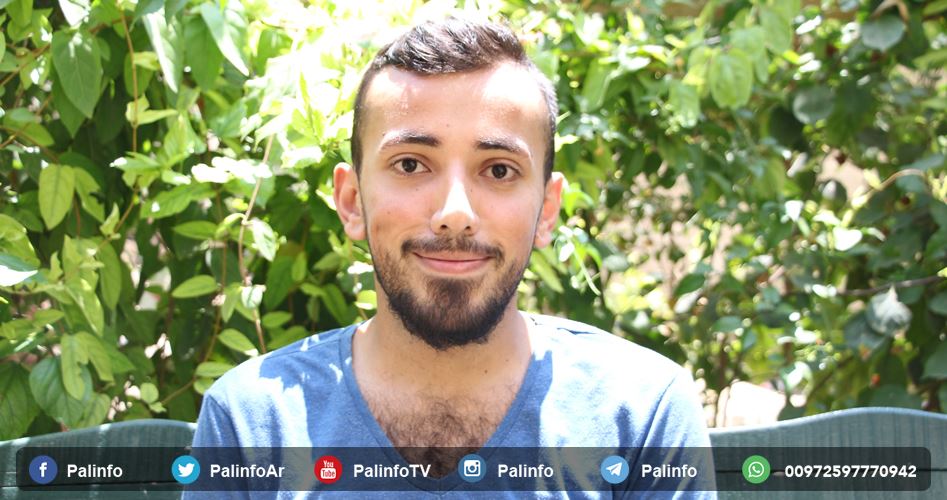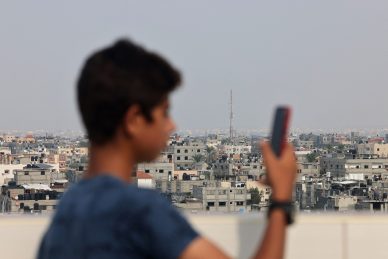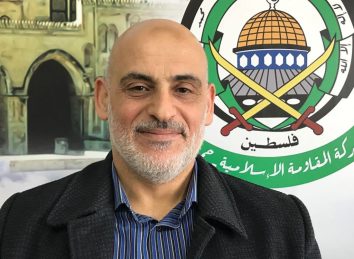Meeting Charlie Chaplin’s successor in Deir Al-Balah in the besieged Gaza Strip was unexpected. His sudden appearance among patients reveals many details of the story.
The 23-year-old Abdallah Abu Shaaban who recovered recently from cancer is impressed by the character of Charlie Chaplin the icon of happiness that brought joy to the world.
Two years ago he recovered from cancer and decided to imitate the experience that pleased him while he was at hospital. He was affected by the role of the clown care who used to visit cancer patients and people with chronic diseases to bring happiness to their hearts.
Abu Shaaban began his journey with cancer in 2007. While at hospital a sound of a clown infiltrated his room then bringing pleasure to his heart changing the course of his thinking after his recovery.
After a long journey of treatment in Gaza and the occupied territories he learned clown caring; but for months he has been unable to practice his hobby due to the lack of work with a civil or a governmental organization in Gaza.
Happiness cures pain
For the first time I listened to the story of Charlie Chaplin in Deir El Balah and how he brought happiness to the hearts of people both when speaking and silent repeating his well known words: “The cure of all diseases is happiness.”
Abu Shaaban told the PIC reporter “Since I recovered I started working alone. I continued to visit hospitals and cancer and kidney patients approaching their families and easing their pain.”
Abdullah received doses of chemotherapy in hospitals in 1948 Occupied Palestine after he suffered from a tumor near the bones of the left side of his chest which was pressing the heart and lung and went through long stages of treatment until he had a bone marrow transplanted.
Unusual dressing having a red nose and making funny movements is what interests any patient watching clowns at hospitals. Successful clowns often don’t have many tools.
Unforgettable stories
During his work Abu Shaaban went through many different situations the most important of which was the day he was entertaining the patients at a Gaza hospital. He saw a mother crying for the bad condition of her son and when he told her he was sick and had recovered she couldn’t believe him.
His journey was not without sad situations while trying to clown caring a patient in the Oncology Department who refused him at first and later he managed to make her feel happy and smile yet her death was declared before he even left the hospital.
Every patient perceives him differently and he has to figure out different ways of approaching them. Some accept him by shaking hands and listening to him beat his drum. However others who refuse his presence he resort to wearing some simple accessories such as a small ball or balloon.
Unemployment
Last December Abu Shaaban concluded two years of clown caring in Gaza with the Basma Amal Foundation in addition to the hospitals in the 1948 occupied territories where he had trained and worked with them.
“Every clown is not a clown care and the opposite is true” he said. There are certain rules for the clown care such as maintaining cleanliness and calm in addition to preserving the patient’s privacy.
After the end of his work with Basma Amal Foundation in December 2016 he tried to establish a new connection with Rantissi Hospital but the Ministry of Health in Gaza recently asked him for a proof confirming he works under an institution. Earlier the Ministry of Health requested him to obtain a license from the Ministry of Culture.
Abdullah hopes that the entertainment culture will develop among the patients in the Gaza Strip’s hospitals which are under siege noting that the psychological situation was and remains the main factor to consider when treating a patient at all times and places.
Feeling others
Zuhair Malakha a psychologist believes that pain prompts people to feel for others during illness or after recovery and that the story of Abu Shaaban embodied a state of projection of his feelings when he was sick.
He added “Since his recovery he has been trying to be a positive person because he missed happiness when he was sick. He felt important when he saw the clown for the first time providing support for others. The clown is a very sensitive person and Abdullah’s experience reveals a noble determination and purpose.”
Hani al-Sharif an expert in the manufacture of dolls and the practice of clown caring praises what Abu Shaaban does stressing that the idea of clown caring was carried out in Gaza by a crew of clowns last year who were visiting patients to entertain them.
“I’ve been making dummies for 15 years and I know what it means to bring joy to broken hearts. I participated in entertainment for the elderly and people with Down’s Syndrome and we were spreading fun everywhere.”
He believes that the experience of Abu Shaaban is a special experience because he lived the disease himself and is aware of the importance of optimism especially among cancer patients. The psychological factor is an important part of their recovery so Abu Shaaban repeated his own experience with determination and optimism at the same time.














